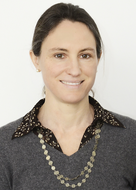Gender Equality
Gender equality at the TUD:
The TUD has approved a new concept of gender equality that defines ambitious goals for the whole university in 2014. Measures that have proved to be effective in the 2009 equality scheme are supplemented by additional, new initiatives. Targeted support of junior scientists is central to the new concept. To increase recruitment of female scientists further, a dual career service, with a subdivision for international young researchers, is provided by TUD.
Gender equality at King’s College London:
At the British partner side an almost identical programme of measures is implemented to promote gender equality and family practices. The Diabetes and Nutritional Sciences Division for instance conducts a “Women in Science” web page, focusing on female scientists and clinicians at their various career stages, from post-doctoral to professor.
Gender equality and the IRTG:
Fortunately, there has been a major increase in the proportion of women receiving a doctorate at the TUD from 32% in 2000 to 41.5% in 2014. In contrast, women in professorships and leadership positions are still clearly underrepresented within the TUD.
The IRTG-ICSMD, however, shows a remarkably high share of female PIs and extends well above the TUD average. To promote women in life sciences at the entry point of their career, the IRTG-ICSMD has purposely selected a number of female independent junior research group leaders. The IRTG gender equality programme aspires to a gender balance on all career levels and aims for a 50:50 gender ratio at postdoctoral level that should persist throughout all career levels.
Highly qualified women and men in science are usually still equally represented at the postdoctoral level. At later stages in the career ladder an imbalance in favour of male scientists tends to dominate the scientific scene. To overcome the imbalance, the IRTG-ICSMD is implementing several measures tailored to female students to prepare them for the challenges of an academic career path and to encourage them to continue their academic career after the postdoctoral level.
Clearly, gender equality is an important issue within the IRTG-ICSMD and it will be addressed as a standard item in all steering committee meetings.
How does the IRTG plan to prepare young women for a scientific career?
The IRTG offers a mentoring/coaching programme for female doctoral and research group leaders. The participation in international communication networks is actively and financially supported. Moreover, the regularly scheduled “Business Introduction Seminars” are supplemented by frequent “Role Model”-seminars, tailored to the needs and interests of the female students by inviting experts from inside and outside academia. Visiting researchers can also be chosen as external mentors within the international mentoring programme to give further advice and support the students in the critical career phase towards the end of training and following the dissertation.
How does the IRTG help creating equal working conditions for female and male researchers?
The IRTG-ICSMD aims to provide equal working conditions during the PhD but also during the later stages of the career for both genders. A space in a childcare facility at TU Dresden/Guy’s Hospital, the Network “MediEltern”, Flying Nannies and HwI positions to help young parents in their scientific work are support measures that should allow both genders equally to combine family life and the pursuit of a career.
What are the demands and expectations of the IRTG students?
To be able to respond to the needs of the students and to allow them to join their career and family life optimally, a questionnaire was developed and given to the students. The results of the questionnaire revealed the students’ immediate needs for family support and coaching or guidance. This information will help the IRTG-ICSMD to support the students to fulfil their career plans as best as possible.
Students were also asked to position themselves with respect to a career and their future plans. It is pleasing that most female students did not feel ill at ease as women in science. Furthermore, only 25% of the students claimed that they had decided to leave science after their PhD.
Contact:
To provide a permanent personal point of contact within the IRTG-ICSMD, the PI Anne Eugster is the designated coordinator for gender equality. She is coordinating, monitoring, and evaluating all gender-related activities in order to further adopt appropriate gender equality measurements in the course of the funding period. All questions relating to gender equality can be addressed to her.
 © U. Lippke
© U. Lippke
Representative CRTD, Coordinator Gender Equality
NameDr. Anne Eugster
Eine verschlüsselte E-Mail über das SecureMail-Portal versenden (nur für TUD-externe Personen).
